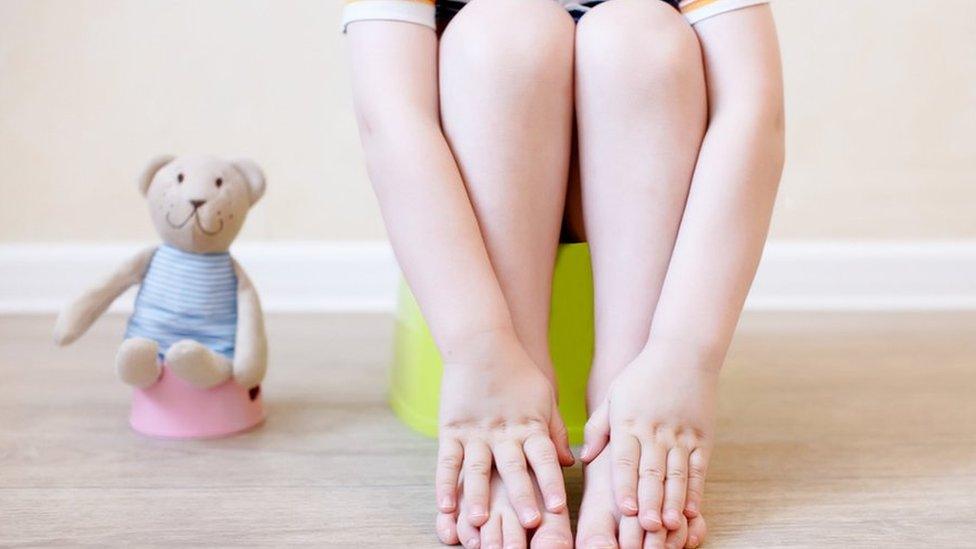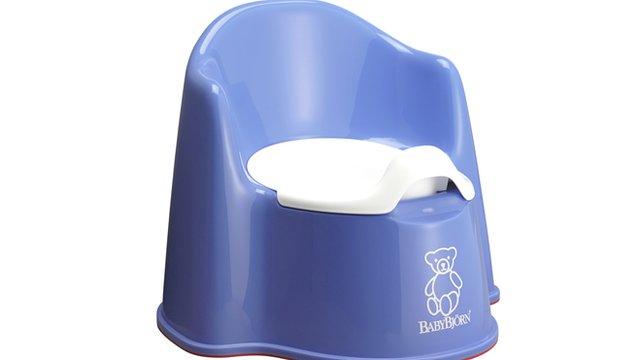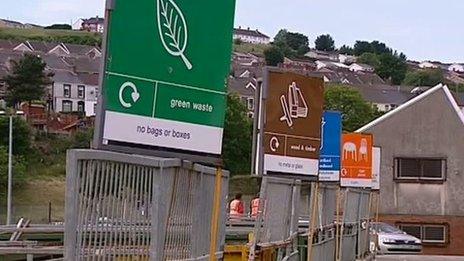Anglesey: No nappy collection service for over 3s
- Published

A council will not offer a used-nappy collection service for children over three, saying most should be potty trained by that age.
Parents will have to show birth certificates to prove eligibility for the new two-weekly scheme on Anglesey.
It comes into place in October, when general waste collections - which usually dispose of nappies - switch to every three weeks.
A parent said he will struggle and "not a lot of thought has gone into it".
A council spokesman said there was a separate service for older disabled children.
The local authority cited sources, external, including the NHS, which says 90% of children are dry most days, external by the age of three.
With general waste (black bin) collections switching from two to three weeks, the aim of the new service is to allow parents to dispose of nappies more quickly.
"Evidence collated by our waste management team suggests that most children are potty trained between the ages of two and three," the spokesman said.
"It has therefore been agreed to offer this new nappy collection service up until a child's third birthday."
'Not much thought'
He said requesting birth certificates will allow the council to gauge how many people were using the scheme - which will only be available from homes and not nurseries or creches.
Parents will have to get an application form from council offices and submit it along with a copy of the birth certificate.
The council currently recycles 59% of its waste, and said it will gauge the impact of the new scheme over the coming months.
Parents of children with medical conditions who are over three can apply to use a separate disposal service.
However, Ian Cheney, whose five-year-old daughter Olivia has Down's syndrome, said he just about manages with black bag collections every fortnight.
He said when it changes to every three weeks he will "not manage" and said there was confusion over whether he was able to use a separate scheme, as the council suggested.
"For people out there in my position, what do we do?" he said.
"It is not just disabled children over three who are still in nappies. There a quite a lot of children out there.
"Not a lot of thought has gone into it."
- Published27 January 2016

- Published28 March 2016

- Published21 March 2012
